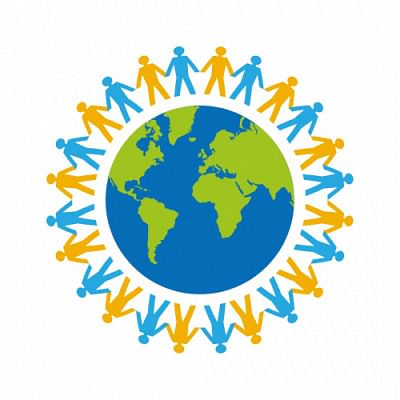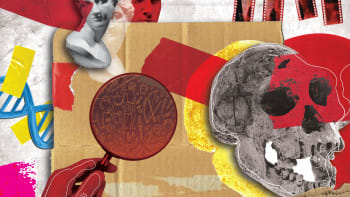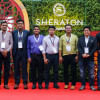A fresh graduate’s guide to working at an NGO

"Development work is inherently people-centric and involves collaborating with diverse internal and external stakeholders, so having 'people skills' is essential for success," shares Nusaiba Naseeree, a programme analyst at BRAC. Fresh graduates aspiring to build a career in the non-governmental organisation (NGO) sector need a solid academic background alongside empathy, expertise, and adaptability to navigate the ever-changing landscape of development work.
"Having a relevant academic background, such as my undergraduate degree in Anthropology, made my resume stand out for entry-level positions," says Kamrul Hasan Shawon, a research and knowledge management specialist at Plan International Bangladesh.
However, a Social Science degree is not a prerequisite. "People from diverse academic backgrounds work in the development sector. Regardless of your field of study, strong academic results can give you an advantage in this increasingly competitive sector," explains Afsara Tasnim, a development trainee at CARE Bangladesh.

"The NGO sector is highly dynamic. Leveraging new technologies and mastering data-driven tools provide a competitive edge," Nusaiba emphasises. Technical skills such as report writing, data analysis, and proficiency with data-driven tools are indispensable. When paired with certifications in project management or specialised areas, however, it enhances career prospects by offering practical skills and networking opportunities.
Additionally, soft skills such as strategic thinking, effective communication, and problem-solving abilities are essential to overcoming the diverse challenges of development work. "There is no denying that every successful initiative in the development sector is the result of effective teamwork. The same applies to my workplace, where the local team, the project design team, and the implementation team all work together seamlessly to achieve the ultimate outcome," says Afsara.
Extracurricular activities (ECAs) and volunteering during student years can also significantly boost a fresh graduate's profile. "ECAs build leadership and teamwork skills – attributes which are invaluable in the workplace," Nusaiba remarks. Shawon himself identified his interest in programme design, research, and knowledge management through volunteering for NGOs, which is how he started his career.
Afsara adds to this saying, "Volunteering is the most effective way to gather skills that will help you reach the door to the development sector and also give you a better picture of the overall development scenario." Having experiences in volunteering and relevant ECAs provides clarity about where your passion lies. They also offer practical exposure to the realities of development work, preparing you for the challenges ahead.
While there is a list of qualifications, skills, and attributes that are required to work at an NGO, how do they translate to the workplace? Shawon describes his role at Plan International, "I lead and coordinate ongoing research activities, oversee studies conducted by external consultants, and manage our knowledge management systems. Collaboration with both internal and external partners is a significant part of my role."
"I am working on a project which focuses on community-led innovation to build adaptive measures that are resilient to the impacts of climate change. It involves collecting and sharing the stories of marginalised communities from climate-vulnerable districts and witnessing firsthand how the project has significantly impacted their lives," shares Afsara.
For professionals like Auntara Tonny, a data collector officer at the Norwegian Refugee Council, the work is more data-intensive. "I collect quantitative and qualitative data under three frameworks, ensuring adherence to the guidelines of the organisation's core products. I monitor ten countries with sixteen humanitarian crises. Working remotely, I coordinate with a global team to share insights and enhance data collection efforts," she explains.
There are a number of positions that NGOs offer. The question for graduates, however, is where they get started. Emerging fields like monitoring, evaluation, accountability, and learning (MEAL) are gaining prominence in the development sector. Mysha Sadman, a hub MEAL officer at the Bijoyee Project by Bangladesh Youth Leadership Center (BYLC), considers MEAL an excellent starting point for fresh graduates, "It provides a balance between technical work and hands-on community engagement. For young professionals, it offers a thorough understanding of how the development sector operates while building expertise in data-driven decision-making."

The rewarding nature of NGO work often comes with significant challenges. One of the primary hurdles is adapting to the physical and emotional demands of fieldwork. "Before turning 30, I visited 46 districts in Bangladesh, many of which I might never have seen if not for this job. While it was fulfilling to witness the impact of our work firsthand, frequent travel and staying in remote areas can be exhausting," says Ahmed Moosa Isty, a private sector engagement specialist at ACDI/VOCA Bangladesh.
Working with diverse socioeconomic groups can also be demanding but deeply enriching. Shawon reflects, "You'll be interacting with various stakeholders, from community participants to funders. Balancing their diverse expectations can be challenging but is essential for success."

Resource constraints and tight deadlines are other common issues. "There are days when you wonder if you're in the right field," Shawon admits. "But when you see the positive changes your work brings, all of the challenges feel worthwhile."
Furthermore, the uncertain nature of funding-dependent projects can create career instability. Isty cautions, "Most development projects rely heavily on external funding. This means job security can be unpredictable unless you secure a permanent position."
Despite the challenges, the opportunity to create tangible change is what draws many to the NGO sector. "I worked with data to evaluate participants' progress. One of the beneficiaries from Kurigram used grants and training to transform her life, gaining respect in her community. Witnessing such economic and social transformations affirms the profound impact of our work," said Nusaiba while sharing a success story from BRAC's Ultra-Poor Graduation Programme.
Afsara highlights the broader impact of development work saying, "Regardless of all the advocacies, knowledge sharing, and other outreach efforts, people outside the development sector still have not completely comprehended the role it plays in the civic community, mostly for the vulnerable. These projects are changing lives gradually, giving them the means to fight back, trying to make them self-sufficient."
The nature of work and opportunities varies between international NGOs (INGOs) and local ones. Shawon outlines the distinction saying, "INGOs like Plan International focus on strategic-level partnerships and broader development agendas. In contrast, local NGOs are often at the forefront of implementing projects on the ground."
For fresh graduates, both pathways offer unique advantages. INGOs provide exposure to global frameworks and larger-scale operations, while local NGOs offer immersive, community-centric experiences. Choosing between them often depends on one's career aspirations and preferred working style.
Working in the NGO sector is as much about mindset as it is about skills. Isty emphasises, "This field is a lifestyle, requiring you to navigate impediments and uncomfortable situations. You need a genuine urge to make an impact on people's lives."
Like any career, working in the development sector has its pros and cons. If you're passionate about creating meaningful change and making a difference in people's lives, this field can be incredibly fulfilling. If you're unsure, however, take the first step: volunteer and explore. In the process, you could just stumble across a path that resonates with you.

 For all latest news, follow The Daily Star's Google News channel.
For all latest news, follow The Daily Star's Google News channel. 









Comments